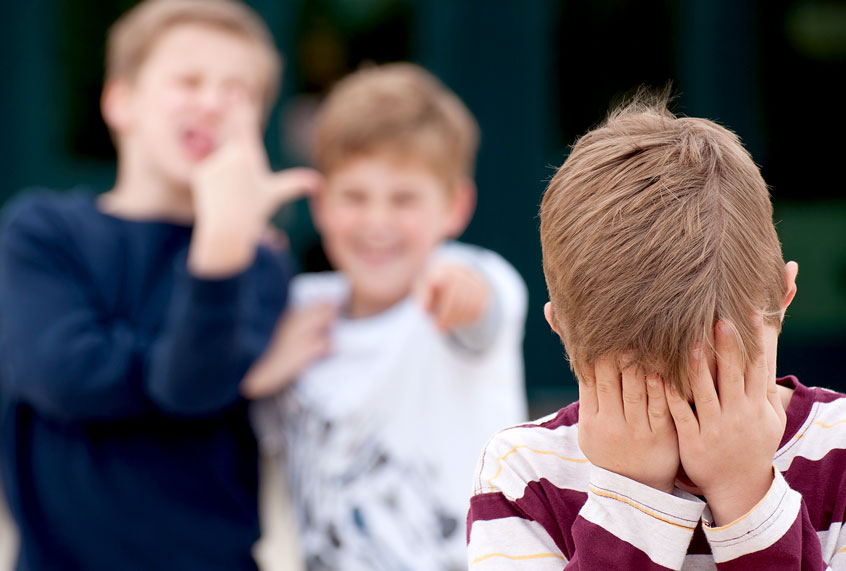It’s September and the digital grapevine is abuzz trying to figure out who’s in which classroom this year. Parents all over the country have Google docs and white boards mapping class lists to try to figure out who is in our children’s classes—hoping they haven’t been assigned to a group, team, or classroom with “those” kids—the mean ones, the cliquey ones, the ones who dictate the terms of how the year will go. Kids know who they are, and so do parents. We all know but we don’t really stop the problem. We talk around it.
I work extensively with kids from across the social skills spectrum — kids who’ve been called bullies or bossy, kids who always seem to be victims, bystander kids who’ve learned to look the other way. I know the kids who are rude and unthinking who, after years of being miserable, have learned to go on the offense, making some other kid miserable first. The victims feel trapped and helpless. So do other kids who witness hurtful behavior and remain silent.
There are three misconceptions about social cruelty and bullying that I hear from parents all the time as a social skills coach and a mother. First, that “kids will be kids” and all kids “can be mean”—overlooking that the level of cruelty dealt out by some is markedly different and hurtful. Second, that we should wait to talk to the teachers, the school or the parent of a child who treats others this way, hoping time will resolve the problem. And finally, that parents of a child who bullies, as well as parents of children who are victims or silent bystanders, have little or no influence over their child’s behavior and there is nothing they can do. All of these things are untrue. The idea that kids will just figure it out on their own—that they need to do so—has a long, miserable and misguided history. When we believe the story that “there’s nothing we can do,” we leave our children to bear the burden. They need our help. Every child needs to believe that change is possible. And they need the social skills to do it.
Bullying, cliques, and exclusive behavior doesn’t come from a few bad apples, and it’s not just a fact of life: It’s the result of kids having been bullied themselves, kids suffering low self esteem, kids lacking empathy, or kids who lack the emotion regulation skills they need to manage their feelings and impulses. Children aren’t born bullies, victims or uncaring bystanders. Problematic social behavior is a sign that a child needs help, not harsh judgment. Adults can teach kids to develop empathy and ways to manage their feelings in situations that makes them feel helpless, scared or defensive. Stronger social skills provide them with healthier coping strategies in social situations and a sense of agency as they choose how to interact with others. The skills to thrive socially and with kindness are teachable if only someone takes the time to teach them.
This year, don’t wait for social dust-ups or disasters to start the conversation with your child, with other parents and at your school for coaching important social skills. Step in and step up:
If you see something, do something. Call out meanness or bullying when you see it. Bring your concerns to a teacher, recess monitors, bus drivers, administrator or the parent of a child whose behavior is concerning to discuss how the situation can be addressed. Actively advocate for inclusion.
Focus on calm, kind, constructive communication. It’s important to keep your cool (emotion regulation) in conversation with any child, parent, teacher or others. Problem solving calls for a collaborative tone and intention. Don’t gossip about other kids or parents. Engage for change.
Coach your child and their friends in simple kindness, empathy and basic social skills. It’s easy to focus on the failings of others—kids and parents alike. Coach yours to treat others fairly and kindly, and to expect the same for themselves. Some simple starters:
- Talk to your child about the behavior she sees. Ask her what she thinks is happening and what factors might be contributing to it (personalities, time, place, or other pressures). Problem solve with your child and her friends to help them find how they can navigate the situation.
- Ask your child to practice taking another person’s point of view—step into someone else’s shoes—and consider that child’s feelings. How do you think James might feel in this situation? What could be going in May’s life that she would behave this way?
- Discuss how social skills don’t come easy to everyone, and practice social smarts that help kids connect or be kinder. What could you do to be helpful in that situation? What would you want someone to say to you if you were feeling that way?
- Share from personal experience a time when you weren’t as empathetic as you might have been, why you try harder now and why it matters to you. When your child uses a snarky look or comment that disrespects another child, talk about it. Make inclusion a core value in your family and don’t just say it—teach your kids the skills to do
We’re quick to tell kids to stand up to bullies, to intervene and call others out on the playground or elsewhere when bullying and cliquish behavior occurs. Kids are getting the message: be upstanders, not bystanders. But it’s up to us to show them how to do it. We need to walk the walk, and remember that we are our children’s first and most powerful teacher and coach for upstander behavior.

